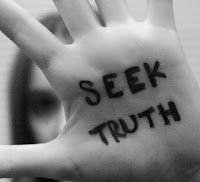I am so interested in this thesis since it expresses the opinion of lots of common people when they deal with philosophical questions like what is truth?, what is knowledge? Or what is meaning? Most people would respond to such questions by arguing that things are clear when it comes to such concepts, those concepts can be easily grasped and that any attempt to define them would be so difficult that it should be ignored.
However, Davidson account can be defeated and therefore such a common opinion is defeatable as well.
a concept which is indefinable is too permissive. In other words, it allows too much in the way of inference. If we can't determine the borders of application of a concept, then it can be used in any way we like to infer whatever we like. In an example offered by Grayling, he argued that if we considered a principle such as "an all-powerful god" to be so fundamental that it is indefinable would allow us to infer everything like this God being able to eat himself for breakfast. Clearly, this kind of inference is absurd. Even if in attempt to avoid absurd conclusions, we adopted the weaker claim that an indefinable concept allows almost everything rather than allowing everything, problems would still be encountered. For example if we took the same concept of "an all-powerful god" to be indefinable, we would be able to conclude something less controversial like this god being able to break the natural laws of the universe. However, clearly such god is not breaking those rules; accordingly we need to draw a boundary for such a concept to at least explain why this god is not breaking those rules even though he is capable of breaking them. Accordingly, a concept without a definition is a concept which we don't know how to use.
On the other hand, one can't simply claim that a concept like truth is indefinable without supporting such a claim with an argument. We all agree that concepts like truth are significant when it comes to philosophy, however, not all of the philosophers agree on the point that those concepts are indefinable. There are philosophers who argue that truth can be defined by appeal to other more fundamental concepts like coherence, correspondence or even by appeal to many evaluatory concepts individuated by discourse. Accordingly, some one who argues that truth is an indefinable concept has to face the question; why does he think so while others think otherwise? You can't answer this question by arguing that this is simply the case. This would only beg the question. You can't answer this question without offering an argument to support the claim that truth is indefinable.
Davidson argued that the reason why we are interested in concepts like truth, knowledge, and so on is that those concepts are so fundamental and it is because those concepts are so fundamental that we can't define them. This argument bares a resemblance to what common people would say about this dilemma. They would argue that those concepts are so fundamental that we can’t provide a definition of them. Adopting such a kind argument as a reason for taking truth to be indefinable is to accept what is called argument from impotence. Descartes for example argued that the best solution to solve the body-mind problem is to ignore it. McGinn argued that humans are continuously barred from knowing how consciousness arises from brain functions; therefore we have to neglect this problem. The argument from impotence releases us from attempting to solve allegedly unsolvable problems. However, the difficulty of answering a question can never be a justifiable cause for neglecting such a question. As we have argued before, we need to define any concept so that we can use it. Therefore, even if this question was difficult we still have to search for an answer to it.
On the other hand, the claim that concepts which can't be analyzed into simpler concepts are indefinable needs further consideration. It can be argued that even if a concept can't be provided a definition by analysis. It can still be defined by extensional paradigm. In other words, instead of offering a strict definition, we can provide examples which would allow us to understand when such a concept can be used and when it can't be used. Through providing examples of the focal cases and of the non focal cases and of the border line cases, a normally intelligent person would grasp the use of such a concept. In such a case we can determine whether the user of this concept uses the concept properly or not and accordingly understand the concept or not. So, concepts like truth can be defined after all, even if not through providing a strict definition.
Davidson provided a response to those issues. The answer is so technical. I might provide it later. However, his response face problems and therefore the theory of indefinability of truth is generally considered to be implausible after all.

